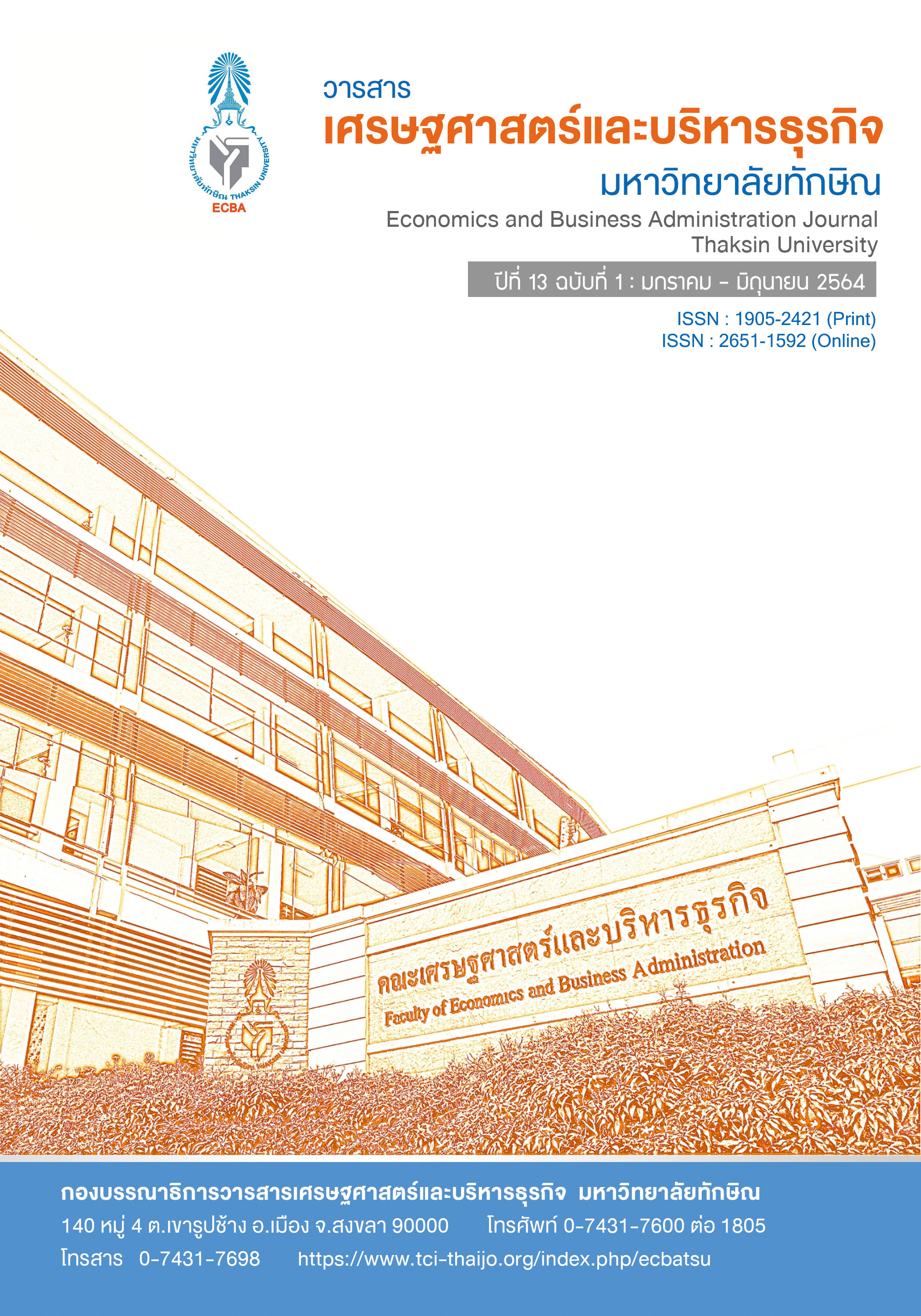Environmental Conservation Attitude among Tourists and Hotel Environmental Management in the City of Chiang Mai, Thailand
Keywords:
environmental management, green tourism, green hotelAbstract
This study aimed to explore environmental conservation attitude of tourists and environmental management of hotel industry including supportive factors and limitation in Chiang Mai city, Thailand. Data were derived from tourists with 535 questionnaires and 20 hotels’ entrepreneurs and employees with interview forms. Descriptive statistic was used for analyzing data from questionnaires and content analysis was used for analyzing data from interviews. The results indicated that the behavioral attitude of environmental conservation was at the level of high and highest. This included positive opinion about environmental conservation, perception of environmental cooperation, perception of social needs, and incentives for environmental conservation. In addition, environmental management in hotel included delegation within administrative structure, stimulation of environmental awareness, waste management, resource and energy saving, provision of environmental friendly procurement, occupational health and safety, community participation, and standard certification. There were its supportive internal factors - vision and policy, administrative structure, leaders and employees with environmental awareness, and continuity of education about environment; and its external supportive factors – law, trend of conservation and green tourism, and hotel association. However, internal and external limitations concerned environmental management; internal limitation – cost, job descriptions, employee turnover, cultivation of environmental awareness; and external limitation – public relations of environment and green tourism, and environmental awareness of customers.
References
Ajzen, I. (1991). The theory of planned behavior. Organizational Behavior and Human Decision Processes, 50(2), 179-211.
Alexander, S., & Kennedy, C. (2002). Green hotels: Opportunities and resources for success. Potland: Zero Waste Alliance.
Chubchoowong, M. (2013). Thailand is ready for green tourism. Bangkok Business, 11.
Dalton, G.J., Lockington, D.A., & Baldock, T.E. (2008). A survey of tourist attitudes to renewable energy supply in Australian hotel accommodation. Renewable Energy, 33(10), 2174-2185.
Economic tourism and sports division. (n.d). Summary of national tourism situation year 2019. Retrieved from https://www.mots.go.th/more_news.php?cid=525& filename=index.
Han, H., Hsu, L.-T., & Sheu, C. (2010). Application of the theory of planned behavior to green hotel choice: testing the effect of environmental friendly activities. Tourism Management, 31(3), 325-334.
Jamaludin, M., & Yusof, Z.B. (2013). Best practices of Green Island Resort. Procedia-Social and Behavioral Sciences, 105(3), 20-29.
Junkaew, K. (2007). Environmental science. Bangkok: the Project of Multi-discipline, Graduate education in Environmental Science, Graduate office at Thammasat University.
Lita R.P., Surya, S., Maruf, M., & Syahrul, L. (2014). Green attitude and behavior of local tourists towards hotels and restaurants in West Sumatra, Indonesia. Procedia Environmental Sciences, 20(2014), 261-270.
Mensah, I., & Mensah, R.D. (2013). International tourists’ environmental attitude towards hotels in Accra. International Journal of Academic Research in Business and Social Sciences, 3(5), 444-455.
Mongkonreudee, P. (2016). Environmental management and business output: a case study of hotel business in Thailand. Bangkok: Thammasat University.
Pothimamaeka, J., Sookplang, C., Sawasdipong, N., Anantathanachai, P., & Veerasamrit, A. (2007). Live and Environment. Bangkok: Rajaphat Suan Dusit Institute.
Rahman, I., Reynolds, D., & Svaren, S., (2012). How “green” are North American hotels? An exploration of low-cost adoption practices. IJHM, 31(3), 720–727.
Saereerat, S. (2004). Marketing Research. Bangkok: Thammasarn Co. Ltd.
Singkham, P., & Wattanapinyo, A. (2019). Environmental management of green hotel business in Chiang Mai Province. Journal of Humanities and Social Sciences University of Phayao, 7(2): 230-245.
Sithusiri, N., Panich, T., & Assarat, N. (2018). Theory development by behavior plan to investigate Thai consumer response toward green hotel in Thailand. Journal of Dusit Thani College, 12(2): 33-48.
The Ministry of Tourism and Sports. (n.d.). The strategic for promotion of green tourism year 2017-2022. Bangkok: Department of Strategy and Plan, the Minstry of Tourism and Sports.
The Ministry of Tourism and Sports. (2019). National tourism situation by province year 2019. Retrieved from https://www.mots.go.th/more_news.php?cid=525& filename=index.
Tierney, P., Hunt, M., & Latkova, P. (2011). Do travelers support green practices and sustainable development?. Journal of Tourism Insight, 2(2), 1-16.
Vanichbuncha, K. (1999). Data analysis by SPSS for Windows. Bangkok: Department of Statistics, Faculty of Commerce and Accounting, Chulalongkorn University.
Yusof, Z.B., & Jamaludin, M. (2013). Green approaches of Malaysian green hotels and resorts. Procedia Social and Behavioural Sciences, 85(2013), 421-431.




